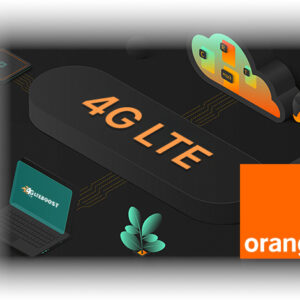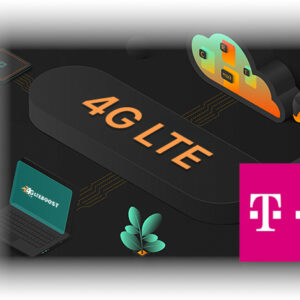SOCKS5, HTTP, UDP Proxies in OpenVPN
Mobile proxy types such as SOCKS5, HTTP, and UDP (HTTP/3) play crucial roles in enhancing internet connectivity and security, particularly when used with OpenVPN. SOCKS5 offers robust security features like multiple authentication methods and support for both TCP and UDP protocols, while HTTP mobile proxies facilitate secure web browsing by operating at higher security levels. UDP, especially in the form of HTTP/3, provides faster data transfer, making these proxies integral to optimizing network performance and privacy.
SOCKS5 Authentication Methods
SOCKS5 proxies support multiple authentication methods, enhancing security and flexibility. The three primary authentication methods are:
- No authentication (null authentication): Allows connection without credentials, suitable for public proxies.
- Username/password authentication: Requires users to provide login credentials, offering basic security for private proxies.
- GSS-API (Generic Security Services Application Program Interface): A more robust, system-level authentication method that uses ticket-granting tickets for enhanced security.
These options allow SOCKS5 proxies to cater to various security needs, from open access to highly secure environments. The chosen method is typically negotiated between the client and server during the initial connection handshake.
HTTP Proxy Security Features
HTTP proxies offer several key security features that enhance user privacy and protect against potential threats:
- Content filtering: HTTP proxies can inspect and filter web traffic, blocking access to malicious websites or inappropriate content
- Caching: By storing frequently accessed web content, HTTP proxies reduce bandwidth usage and improve load times while minimizing exposure to external servers
- SSL/TLS encryption: HTTPS proxies support secure connections, encrypting data between the client and proxy server to prevent eavesdropping.
- IP masking: HTTP proxies hide the client’s real IP address, providing a level of anonymity and protection against tracking.
While HTTP proxies offer these security benefits, it’s important to note that they may not provide the same level of protocol flexibility as SOCKS5 proxies, which can handle various types of internet traffic beyond just web browsing.
UDP Performance in SOCKS5
SOCKS5 proxies offer improved performance for UDP traffic compared to other proxy types, making them ideal for applications that require low latency and high throughput. The UDP support in SOCKS5 allows for faster data transmission without the overhead of establishing and maintaining TCP connections.
This is particularly beneficial for:
- Real-time applications like online gaming and VoIP services
- Streaming media and video conferencing
- DNS lookups and other time-sensitive data transfers
SOCKS5’s ability to handle UDP traffic efficiently also contributes to better overall network performance, especially in scenarios where speed is crucial. The protocol’s design allows for direct UDP packet forwarding, reducing latency and improving responsiveness for UDP-based applications.
SSL/TLS Encryption in Proxies
SSL/TLS encryption plays a crucial role in proxy servers, enhancing security and privacy for network communications. In SSL/TLS proxy configurations, the proxy acts as an intermediary, decrypting and re-encrypting traffic between clients and servers. This process allows for content inspection and policy enforcement while maintaining end-to-end encryption.
Key aspects of SSL/TLS encryption in proxies include:
- Man-in-the-middle functionality: The proxy establishes separate SSL/TLS connections with both the client and server, allowing it to inspect and modify traffic if necessary.
- Certificate handling: Proxies often use their own certificates to establish trust with clients, requiring the installation of a root CA certificate on client devices.
- Performance considerations: SSL/TLS proxies can impact network performance due to the additional processing required for encryption and decryption.
- Security benefits: These proxies enable threat detection in encrypted traffic, helping organizations identify and mitigate risks that would otherwise remain hidden.
While SSL/TLS proxies offer significant security advantages, they also introduce potential privacy concerns and require careful implementation to maintain the integrity of encrypted communications.
Key Features to Look For
When selecting a 4G/LTE SOCKS5 proxy that supports UDP and potentially HTTP/3 via OpenVPN, consider the following features:
- UDP Support: Essential for applications requiring real-time data transfer, such as streaming and gaming.
- OpenVPN Integration: Provides an additional layer of security and flexibility.
- HTTP/3 Compatibility: While not explicitly mentioned for all providers, this newer protocol offers improved performance, especially on mobile networks.
- 4G/LTE Network: Ensures faster speeds compared to older technologies.
- Large IP Pool: More IPs mean better rotation options and less chance of detection.
- Authentication Methods: SOCKS5 offers enhanced authentication options for improved security.
- Reliable Speeds: Look for providers offering consistent, high-speed connections.
- Uptime Guarantee: Higher uptime percentages ensure more reliable service.
- Customer Support: 24/7 support can be crucial for resolving any issues quickly.
SOCKS5 vs HTTP Proxies
SOCKS5 proxies offer distinct advantages for social media bots and other applications requiring preservation of original request headers. Unlike HTTP proxies, SOCKS proxies do not modify request headers, potentially leading to higher trust scores and reduced detection risk on social media platforms. This characteristic makes SOCKS5 proxies particularly suitable for tasks where maintaining the integrity of the original request is crucial.
The versatility of SOCKS5 proxies extends to handling various types of internet traffic beyond just HTTP, including UDP protocols, making them ideal for diverse applications. However, for web scraping tasks, HTTP(S) proxies may prove more efficient due to their optimization for web traffic.
When choosing between SOCKS5 and HTTP proxies, consider your specific use case, the importance of preserving original request integrity, and the type of traffic you need to route. For social media bots and applications requiring low-level network access, SOCKS proxies often provide a superior solution, while HTTP proxies excel in web-specific scenarios.



